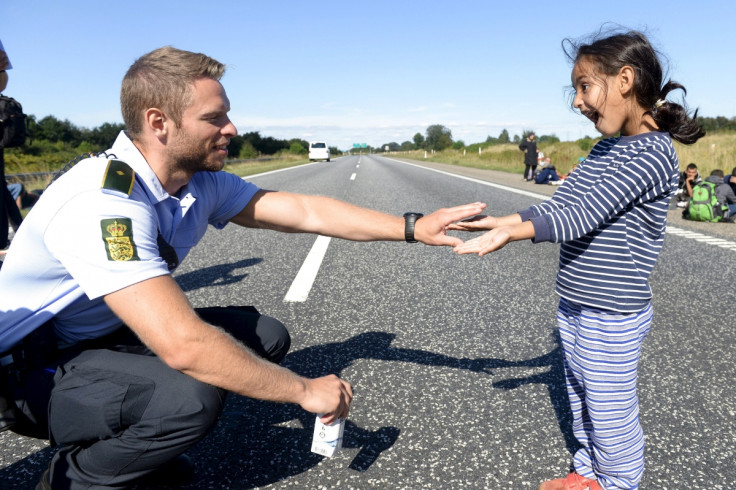EU migrant crisis: Denmark reopens cross border railway services as Hungary trains army

Railway traffic between Germany and Denmark was slowly resuming after closures sparked by an influx of hundreds of would-be-refugees heading to Sweden heightened difficulties faced by the European Union in coping with the migrant crisis.
Danish train operator DSB said cross border services were to be normalised throughout the day but some restrictions would remain in place after yesterday's (9 September) suspension.
The halt came as traffic was engulfed by frantic passport-checking activities, with hundreds of Scandinavia-bound migrants refusing to get off carriages, fearing they would be forced to apply for asylum in Denmark.
Denmark's police chief Jens Henrik Hoejbjerg said his officers have now been ordered not to stop migrants who crossed into the country from its southern neighbour. "[We] can't detain foreigners who do not want to seek asylum [in Denmark]," he said.
Sweden and its advanced social system are a coveted final destination for many refugees, in particularly Syrians, to whom Stockholm has promised asylum. On the other hand Denmark's newly elected centre-right government has been trying to discourage would-be-refugees, cutting benefits and also placing anti-immigration ads in Lebanese newspapers.
Under EU current rules, refugees have to apply for asylum in the first EU country they reach. If they travel to a second EU nation, they can be forcibly sent back to the country of entry.
Yesterday, Danish also closed off a trafficked motorway when some migrants who had been forced off a train near the port of Roedby -- which has ferry links with Germany -- set off walking north. DSB said the ferry crossing is to remain closed to trains also today, with only vehicles allowed on board.
Border closures have far-reaching implications within the EU as they undermine free movement principles enshrined in the Schengen Agreement, which has become the object of debate since the beginning of the crisis, with some governments arguing it should be suspended.
Meanwhile, the Hungarian army had started border patrol drills as Prime Minister Viktor Orban ponders the use of the military to seal off the country from migrants crossing from Serbia. The hawkish right-winger has already ordered the construction of a razor-wire fence along the border to contain the flow.
A record number of more than 340,000 refugees and migrants have crossed EU borders so far this year, mainly through a dangerous sea route across the Mediterranean to Greece and Italy. More than 2,600 are believed to have died at sea since January. From Greece tens of thousands have travelled by land to Macedonia and then on to Serbia and Hungary, on the way to other northern EU states.
As entry countries are overwhelmed by the massive influx, the EU has laid out plans to redistribute refugees among member states. The President of the European Commission Jean-Claude Juncker used a State of the Union speech in Strasbourg to announce a quota system to relocate some of 160,000 people across the 28-nation bloc. The plan has, however, met opposition from a number of governments.
Among them is the Czech administration led by Prime Minister Bohuslav Sobotka. "The compulsory quotas are not a good solution," he said.
"To continue with a discussion about their establishment all across Europe only prevents us from taking really important and necessary steps."
© Copyright IBTimes 2025. All rights reserved.






















